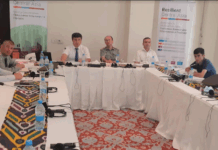Third-party intermediaries pose a significant corruption risk for multinationals. In this six-part series, Jim Nortz provides practical steps to reduce your firm’s corruption risk and avoid prosecution in the event an intermediary is caught paying bribes.
After less than six months on the job as Chief Compliance Officer for a multinational corporation, I found myself in a shabby conference room in the U.S. Department of Justice’s Fraud Division in Washington, D.C. Seated across the table from me was an Assistant U.S. Attorney (AUSA) who was trying to decide whether to prosecute my new employer for multiple Foreign Corrupt Practices Act (FCPA) violations.
Before I took the Chief Compliance Officer position at the firm, the company had voluntarily reported several instances in which its Intermediaries in China, Pakistan and Ukraine paid bribes to government officials. Each of these matters were thoroughly investigated. The company terminated relationships with all the Intermediaries implicated in the corrupt schemes, and I was in the process of leading the work to enhance the company’s global anti-corruption program. The purpose of our meeting with the AUSA was to report the outcome of our investigations and to persuade the Fraud Division not to pursue an enforcement action against the company.
Following…


































